#Gustav Diessl
Explore tagged Tumblr posts
Text





PANDORA'S BOX | Die Büchse der Pandora dir. Georg Wilham Pabst | 1929
#die büchse der pandora#pandora's box#pandoras box#filmedit#classicfilmedit#louise brooks#gustav diessl#german cinema#silent films#ours#by teri#classicfilmsource#dailyworldcinema#usersugar#usermichi#userdeforest#userdiana#userbrittany#userkd#1920s#film
669 notes
·
View notes
Text








Pandora's Box (Die Büchse der Pandora) (1929) G.W. Pabst
April 20th 2025
#pandora's box#Die Büchse der Pandora#1929#g.w. pabst#louise brooks#francis lederer#Fritz Kortner#Carl Goetz#Alice Roberts#Krafft-Raschig#Michael von Newlinsky#Gustav Diessl#favourite#tspdt 1000 greatest 2025#brooksie
4 notes
·
View notes
Text






'Pandora's Box' 1929. Promotional Photos.
6 notes
·
View notes
Text
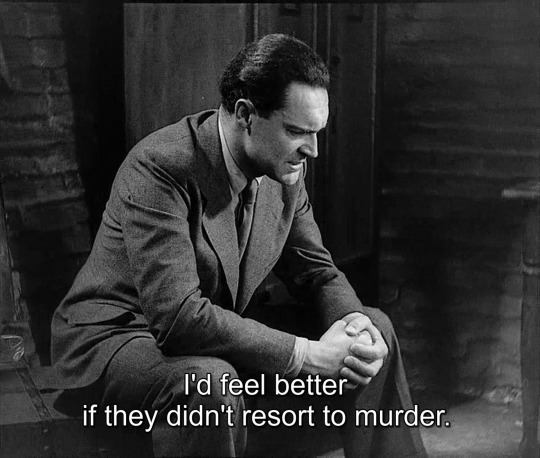
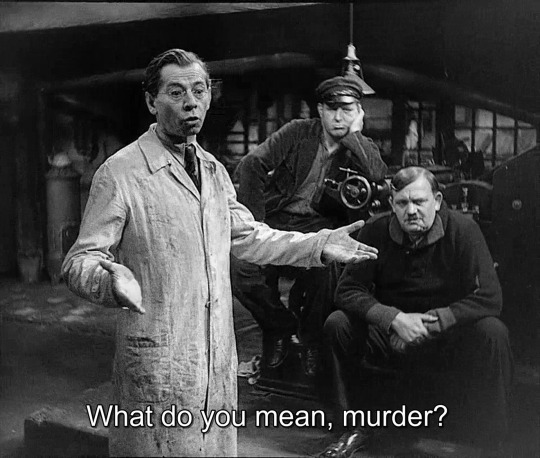
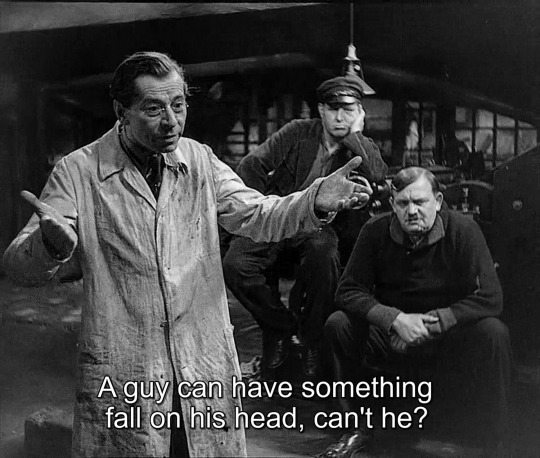
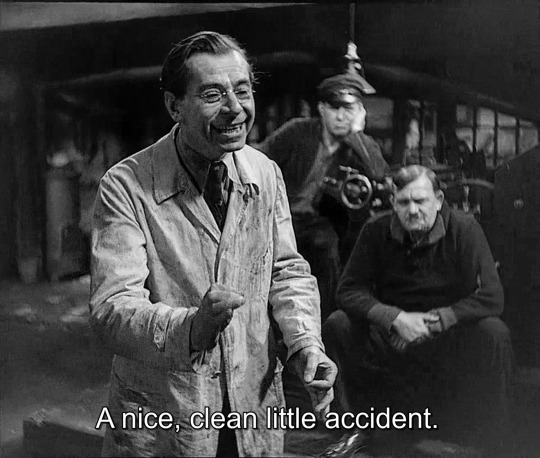
Das Testament des Dr. Mabuse, 1933
#crime#mystery#thriller#Das Testament des Dr. Mabuse#the testament of dr. mabuse#fritz lang#rené sti#norbert jacques#thea von harbou#gustav diessl#maurice maillot#happenstance
15 notes
·
View notes
Text

Austrian actor Gustav Diessl on a vintage postcard
#postkaart#gustav#actor#carte postale#briefkaart#austrian#old#sepia#gustav diessl#postkarte#vintage#postal#photography#diessl#ephemera#postcard#tarjeta#photo#ansichtskarte#historic
3 notes
·
View notes
Text

1 note
·
View note
Text
WESTFRONT 1918:
Four German soldiers
No comfort returning home
Driven mad by war
youtube
#WESTFRONT 1918#random richards#poem#haiku#poetry#haiku poem#poets on tumblr#haiku poetry#haiku form#poetic#criterion collection#criterion channel#Vier von der infanterie#Fritz Kampers#Gustav Diessl#Hans-Joachim Mobis#Claus Clausen#Jackie Monnier#Hanna Hoessrich#Else Heller#g.w. pabst#GW Pabst#georg wilhelm pabst#Ernst Johannsen#Ladislaus Vajda#Peter Martin Lampel#war movie#Youtube
0 notes
Photo
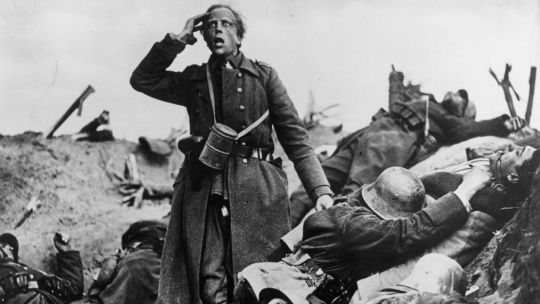
Westfront 1918 (G.W. Pabst, 1930)
Cast: Fritz Kampers, Gustav Diessl, Hans-Joachim Möbis, Claus Clausen, Jackie Monnier, Hanna Hoessrich, Ersa Heller. Screenplay: Ladislaus Vajda, Peter Martin Lampel, based on a novel by Ernst Johannsen. Cinematography: Charles Métain, Fritz Arno Wagner. Art direction: Ernö Metzner. Film editing: W.L. Bagier, Jean Oser, Marc Sorkin. Music: Alexander Laszlo. Authenticity is a problematic criterion to apply to any work of art, but especially a motion picture, considering that fakery is a given at almost every level of its creation. Even a documentary is subject to editing, narration, and various manipulations of point of view. We usually critique a film's authenticity only when it serves our own agendas, or when it is so manifestly lacking that it stretches credibility. Pabst's Westfront 1918, an exceptionally effective movie about German soldiers in the last days of World War I, just happened to be released in the same year as All Quiet on the Western Front (Lewis Milestone, 1930), which won the best picture Oscar. The German soldiers in All Quiet are Americans like Louis Wolheim (born in New York), Lew Ayres (from Minneapolis), and Ben Alexander (from Nevada). Pabst's film features German and Austrian actors, one of whom, Gustav Diessl, had actually been a prisoner of war during World War I. So Westfront 1918 would seem to have the authenticity criterion sewn up. Does this necessarily make it a better film than All Quiet? The truth is, I would have to rate it a draw: What Milestone's film lacks in authenticity it makes up for with Hollywood finesse, an efficiency in storytelling and the polish brought by technical expertise. There are parts of Pabst's film that seem extraneous, such as the section in which the troops enjoy some rather corny vaudeville routines. But the movie also has an abundance of extremely well-staged combat scenes that demonstrate the confusion and terror, the "fog of war." And it has a core of fine performers -- especially Diessl as Karl, who goes home on leave to find his wife in bed with the butcher who has been supplying her with food in exchange for sex, but also Hans-Joachim Möbis as the naïve student who falls in love with a French girl, and Claus Clausen as the lieutenant who has a mental breakdown under the strain of combat. With its home front scenes, Pabst's has that undeniable depth of feeling that can only come from an awareness of what that disastrous war did to the country in which the actors and filmmakers lived. Three years after Westfront 1918 was released, to a good deal of controversy about its treatment of the war as folly, it was suppressed by the newly emergent National Socialist regime as deleterious to morale. Pabst's film concluded with the word "Ende?!" which in itself qualifies as prophetic.
7 notes
·
View notes
Text
Dita Parlo with Gustav Diessl in Menschen hinter Gittern (1931).

0 notes
Photo




Abwege (Georg Wilhelm Pabst, 1928)
#abwege#georg wilhelm pabst#the devious path#brigitte helm#gustav diessl#1928#silent#silent cinema#silent movies#silent film#pabst#german cinema#german film#german movies
54 notes
·
View notes
Photo

Louise Brooks & Gustav Diessl - In A Production Still From
Pandora’s Box (1929) Dir: G.W.Pabst
Pic Source: @ForeverLouiseB1 (Twitter)
#louise brooks#gustav diessl#in a production still from#pandora's box#1929#dir: g.w. pabst#silent screen stunner#silent screen beauty#cropped photo#vintage b/w photography#silent german film#silent german cinema#pic source: twitter account - foreverlouiseb1
80 notes
·
View notes
Photo



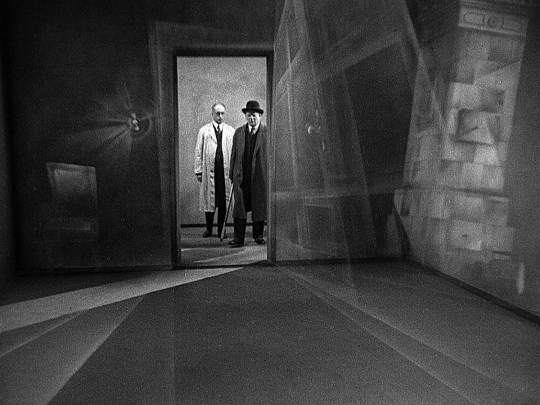


The Testament of Dr. Mabuse (Das Testament des Dr. Mabuse) (1933) Fritz Lang
February 23rd 2022
#the testament of dr. mabuse#das testament des dr. mabuse#1933#fritz lang#otto wernicke#gustav diessl#rudolf klein-rogge#wera liessem#oscar beregi sr.#the crimes of dr. mabuse#the last will of dr. mabuse
16 notes
·
View notes
Text






'Pandora's Box' 1929. Promotional Photos.
4 notes
·
View notes
Photo








Das Testament des Dr. Mabuse | Fritz Lang | 1933
Wera Liessem, Gustav Diessl
Happy Valentines Day!
80 notes
·
View notes
Photo






"Sie und diese Frau werden diesen Raum lebend nicht mehr verlassen ..." Gustav Diessl als Thomas Kent und Wera Liessem als Lilli in "Das Testament des Dr. Mabuse" (1933)
3 notes
·
View notes
Photo

Pandora’s Box
directed by G.W. Pabst, 1929
#Pandora's Box#Die Büchse der Pandora#G.W. Pabst#Georg Wilhelm Pabst#movie mosaics#Louise Brooks#Fritz Kortner#Francis Lederer#Gustav Diessl
7 notes
·
View notes